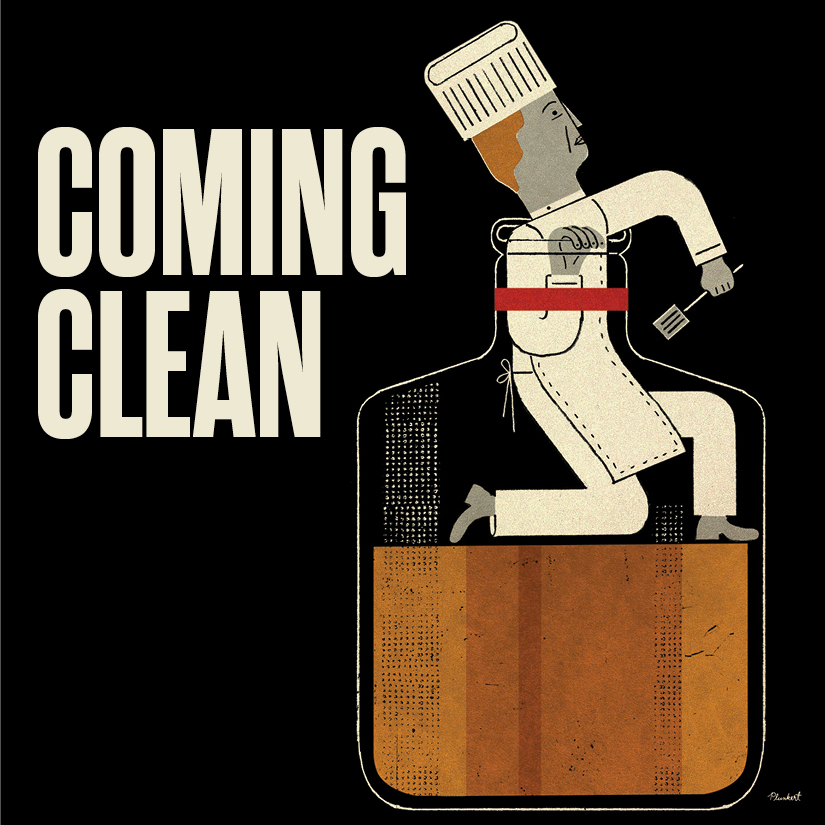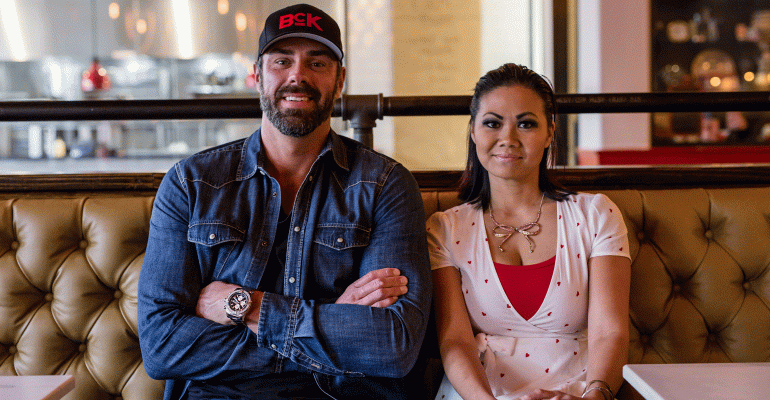
In this in-depth investigation, NRN looks at how restaurants can recover from a culture of substance abuse.
When Leslie Nguyen was a bartender in her early 20s, her employers would encourage her to drink with customers.
The more the barkeep imbibed, the loftier the tab at the end of the night. At the time, the self-described party girl thought she was living a dreamy life.
“I’m pretty much getting paid to party,” she told herself.
Nguyen’s current business partner, John Reed, followed a similar path. Like Nguyen, he was a social drinker. The two restaurateurs met at a sports lounge Nguyen owned in Irvine, Calif., in 2009. A year later, they went into business together.
For years, they worked hard and played even harder.
Sober now for about four and five years, respectively, Nguyen and Reed have rechanneled their addictions to something else: Bosscat Kitchen & Libations. The whiskey bar with locations in Newport Beach, Calif., and Houston is known for Sunday brunch, American comfort food and a vast whiskey collection.

The whiskey room at Bosscat
So, how do the co-founders stay sober while running a restaurant whose main profits come from peddling spirits?
Reed acknowledged that having infinite amounts of alcohol at his disposal was like adding “lighter fluid” to a flame.
“And, when you’re the owner, the rules don’t apply,” he said.
But he and Nguyen, both 38 years old, said temptation is everywhere when you’re an alcoholic. So, they might as well work at something they’re passionate about.
“I think if I was confined to an office job, I would probably relapse,” said Nguyen, who began drinking at the age of 15.
While seeking professional help, Reed said he was advised to get out of the restaurant industry. But he couldn’t imagine it.
“This is the only thing I’ve ever been good at,” said Reed, who earned his restaurant chops as a bartender, server and manager at various establishments, including a Ruth’s Chris Steak House in Florida.
The restaurant owners now put all their energy into running their bars, treating them like a business.
Not a playhouse.
Learning that lesson didn’t come easy.

For Reed, his moment of truth came on Jan. 6, 2013. He started drinking on New Year’s Eve and didn’t stop for six consecutive days. His family and friends, including Nguyen, called an intervention.
He sought help and never looked back.
For Nguyen, witnessing Reed’s addiction never forced her to look at her own self-destruction.
As the quintessential social drinker, she didn’t discriminate with her libations. She drank beer, wine, spirits and cocktails. Whatever the occasion, she’d find a reason to indulge.
“If it was a holiday, it was eggnog,” she said.
Then, in mid-May 2014 — three weeks after she and Reed opened their first Bosscat in Newport Beach, Calif. — she crashed into a semi-truck and was arrested on suspicion of drunk driving.
No one was injured, but the severity — and embarrassment — of the situation jolted her into reality.
She sought help through Alcoholics Anonymous. “I didn’t realize how much I drank until I stopped drinking,” she said.
Today, the two friends said their busy restaurant life keeps them grounded.
Along with third partner Vincent Capizzi, Reed and Nguyen own four restaurants: two Bosscats, the recently opened BCK: Kitchen & Cocktail Adventures in Houston and Ten Asian Bistro in Newport Beach, Calif.
Instead of sharing shots with customers, Nguyen now enjoys regaling them with her knowledge of Bosscat’s highly curated whiskey collection. Each restaurant has a lounge sporting a wall of spirits from distilleries in Kentucky, Canada, Scotland, Ireland, Tennessee, Texas, Utah and Philadelphia.
Watching guests enjoy the restaurants is “the best high you can get,” Reed said.
Reed and Nguyen said they speak openly with their staff about their daily battle with alcoholism, even though the topic is taboo in the industry.
But their transparency has inspired three of their bartenders to go sober.
“If you can do it, I can do it,” the employees told them.
That kind of faith is the best motivator for them.
“Now we have to be sober,” Nguyen said. “There’s absolutely no going back.”
Read more:
Coming Clean: Recovering from a culture of substance abuse
Is the notorious world of restaurant partying taking a sober turn?
Why the opioid crisis is a restaurant crisis
Beyond AA: Where restaurant workers go for help
7 practices to avert substance abuse in restaurants
Ron Eyester on sobriety: 'I've honestly never felt worse'
Do you have to leave foodservice to stay sober?
Column: A restaurant employee, an opioid addict, my son
7 things to know about the opioid crisis
Contact Nancy Luna at [email protected]
Follow her on Twitter: @fastfoodmaven

